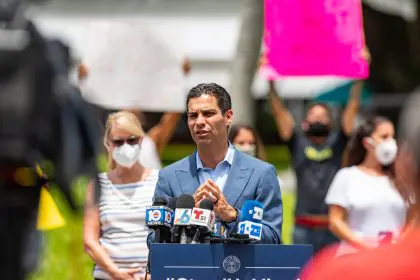In a significant move following a federal investigation into the Memphis Police Department triggered by the tragic death of Tyre Nichols, the city has appointed former federal judge Bernice Donald as an independent monitor. This decision aims to ensure that the MPD implements necessary reforms without entering into a consent decree with the Department of Justice.
Background of the investigation
The federal investigation into the MPD was initiated after the disturbing circumstances surrounding Nichols’ death, which raised serious concerns about civil rights violations within the department. In light of these findings, the city of Memphis has taken steps to address these issues, albeit with a controversial approach.
City’s decision against a consent decree
According to reports from WREG, Memphis officials expressed a clear preference to avoid a consent decree, citing concerns about the financial burden it would impose on taxpayers. A letter released by the city earlier in December articulated this stance, stating, “After evaluating the effects of these consent decrees in other cities, we believe there are better ways to reimagine policing that do not slow the process or cost the taxpayers millions of dollars.” This decision has sparked skepticism among community activists.
Community activist concerns
Activists, including Earle Fisher, have voiced their distrust in the city’s ability to independently implement effective reforms. Fisher stated, “We want a level of oversight and regulatory force that we don’t trust the city to implement, in and of itself.” This sentiment reflects a broader concern within the community regarding the accountability of the MPD and the city administration.
Mayor’s confidence in Judge Donald
Despite the skepticism, Memphis Mayor Paul Young expressed confidence in Donald’s ability to guide the reform process. In a statement, he emphasized the importance of transparency and community engagement, asserting, “Together, we will develop a comprehensive action plan that meets the needs of our residents.” The city plans to establish a nine-person task force to facilitate community engagement and develop a response plan under Donald’s oversight.
Funding and resources for reforms
The city has committed to allocating a budget that will enable Donald to secure necessary resources and subject matter experts to support the development of the reform response. Chief Legal Officer Tannera Gibson praised Donald’s extensive experience and impartiality, stating, “We believe that under her guidance, the task force will effectively engage the community and develop a responsive action plan that truly reflects our city’s needs.” This approach aims to foster a collaborative environment for reform.
Calls for accountability
Despite the city’s efforts, the Black Clergy Collaborative has criticized the decision to avoid a consent decree, arguing that it undermines accountability. They stated, “We have no trust or confidence in leaving corrections to the people involved in the unlawful conduct.” This highlights the ongoing tension between community leaders and city officials regarding the best path forward for policing reforms.
The financial implications of reform
Fisher, in an op-ed, criticized Young’s decision to reject a consent decree based on cost concerns, arguing that investing in reforms is ultimately more economical than facing the financial repercussions of police misconduct. He pointed out the staggering potential costs associated with lawsuits, such as the $550 million claim from Nichols’ family, emphasizing that proactive reform is a prudent investment.
The appointment of Donald as an independent monitor represents a pivotal step in Memphis’s efforts to reform its police department. However, the decision to forgo a consent decree has raised significant questions about accountability and trust within the community. As the city moves forward, it will be crucial to ensure that the voices of residents are heard and that meaningful reforms are implemented to restore faith in the MPD.















